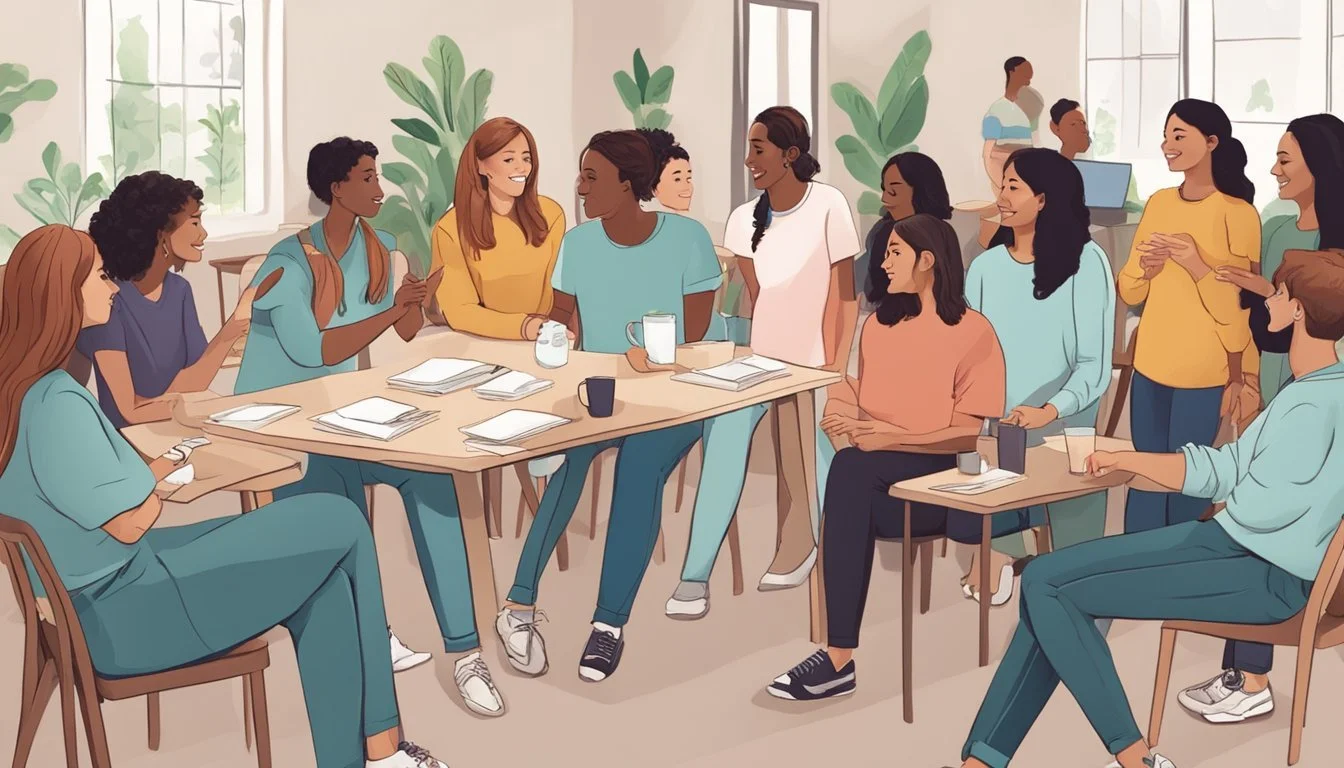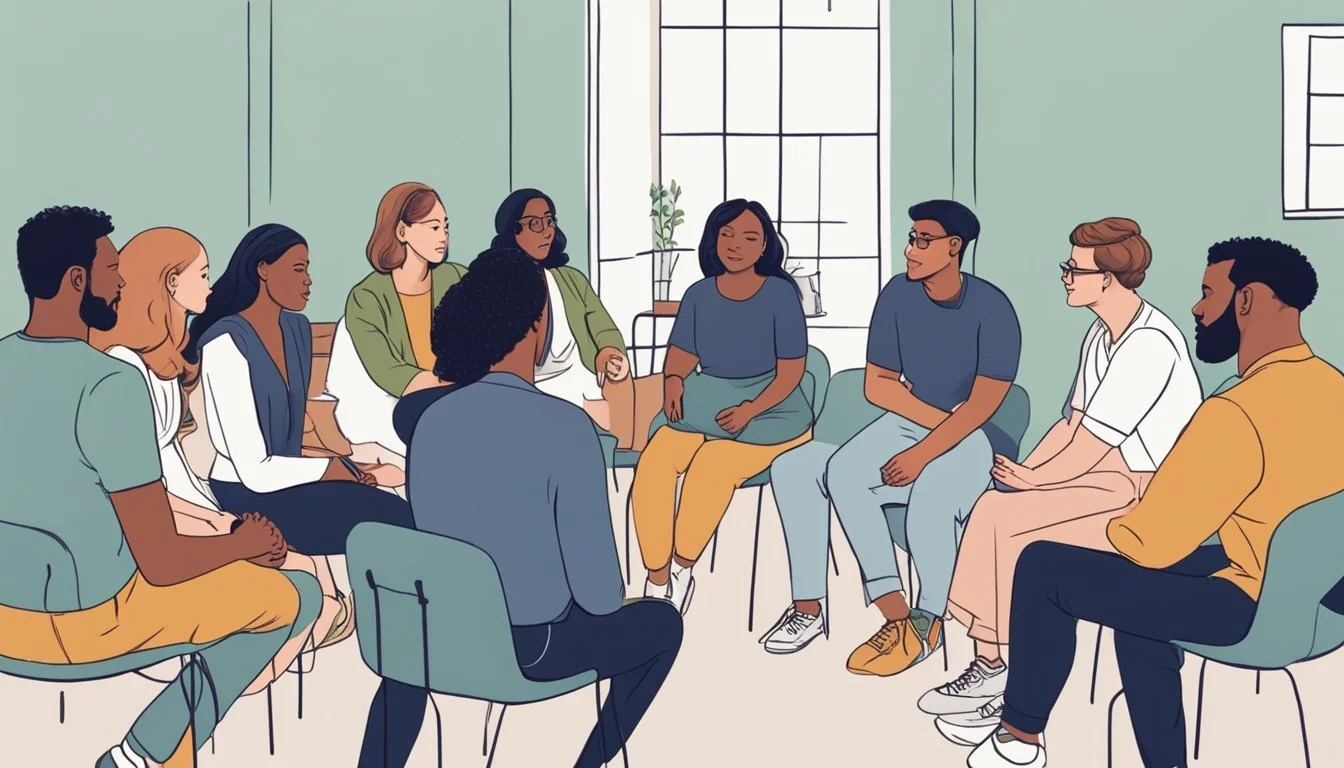8 Ways to Cope When Your Best Friend Gets Married
Practical Tips for Emotional Balance
When your best friend gets married, it can trigger a wave of mixed emotions. Witnessing someone close to you embark on this significant life change might leave you feeling excited, nostalgic, and even a bit anxious about your own future. This article will explore various ways to cope with these feelings and maintain a strong friendship.
Navigating the transition from being best friends to adjusting to their married life can be challenging. It’s natural to worry about how your relationship dynamics might shift and what your new role will be in their life. Understanding how to manage these changes can help you support your friend while also taking care of yourself.
1) Schedule regular catch-ups
Regular catch-ups help maintain the bond between friends, even when life changes. Setting aside specific times for meetings ensures continued connection.
Scheduling helps establish a routine. By planning ahead, both parties can prioritize the friendship amidst busy schedules.
Choose suitable times for both parties. Consider each other's availability to avoid conflicts and ensure participation.
Utilize various communication methods. Whether through face-to-face meetups, video calls, or phone conversations, staying connected in various ways helps keep the friendship strong.
Mark these sessions on your calendar. Treat these appointments as important as any other meeting to ensure they are not overlooked.
Scheduling regular catch-ups sustains the friendship and provides shared experiences and conversations, which are essential for keeping the bond alive.
2) Join a New Hobby Group
Joining a new hobby group can provide a great way to meet new people and stay socially active. It allows someone to engage in activities they enjoy, making it easier to connect with others who have similar interests.
Game nights are a popular option for many. They offer a relaxed atmosphere where individuals can play games like Settlers of Catan or Sushi Go! and get to know each other better.
For those who enjoy more physical activities, joining a local sports league or fitness class can be beneficial. These environments promote teamwork and camaraderie, making it easier to form new friendships.
Creative individuals may prefer art classes or crafting groups. These settings encourage collaboration and provide plenty of opportunities for conversation and bonding over shared creative interests.
Community service or volunteer groups are another excellent choice. Helping others while working alongside like-minded people fosters a sense of community and belonging.
Book clubs can also offer a structured way to make new connections. They provide regular meeting times and focused discussion topics, making it easier to get to know fellow members.
For those interested in developing new skills, consider joining a class or workshop. Whether it’s cooking, coding, or gardening, learning something new together can be a bonding experience.
Online communities can be just as engaging. Digital hobby groups, forums, and social media groups offer a platform to connect with others from anywhere in the world.
3) Read 'Tiny Beautiful Things' by Cheryl Strayed
Reading "Tiny Beautiful Things" by Cheryl Strayed can be a comforting activity when a best friend gets married. Strayed's collection of advice columns under the pseudonym "Sugar" offers deep insights into love, loss, and life transitions.
This book compiles some of the best pieces from her popular "Dear Sugar" advice column, making it a rich source of wisdom. Each letter and response tackles various life challenges, resonating deeply with readers navigating change.
One standout feature of the book is its mix of humor, honesty, and compassion. Strayed brings a unique voice that feels both soothing and enlightening, providing a balm for those feeling left behind during significant life events like a friend's wedding.
Cheryl Strayed's writing shows readers different perspectives on complex emotions, helping them process their own feelings. The book's guidance can be both comforting and empowering, making readers feel understood and less alone.
For those interested in learning more or purchasing the book, it can be found on Amazon. This book is more than just a collection of advice; it is a guide through life's uncertainties, making it a valuable read during times of change.
4) Plan a Solo Trip
Planning a solo trip can be a transformative experience. Not only does it allow for personal growth, but it also provides an opportunity to explore new destinations independently.
Choose a destination that excites and challenges you. Consider safety, culture, and activities that you enjoy. Research thoroughly and make well-informed decisions to ensure a smooth trip.
Make a few plans in advance. Booking accommodations, transportation, and some activities can prevent unnecessary stress. Having a dinner reservation or activities planned can give you something to look forward to.
Safety is a priority when traveling alone. Keep multiple copies of essential information like emergency contacts and travel documents. This can be helpful in case of emergencies, such as losing your phone or having it stolen.
Use common sense while on the road. Blend in with the locals and follow their customs to avoid standing out. Staying alert and observant helps in navigating unfamiliar places more safely. Solo travel requires relying on oneself and being prepared for any situation.
Finally, embrace the freedom that solo travel offers. Without compromising on anyone else's preferences, you can explore at your own pace. This independence can be both empowering and rejuvenating.
5) Start a journal
Starting a journal can be a meaningful way to cope when your best friend gets married. It offers a dedicated space for reflection and expressing emotions. Writing down thoughts can help process feelings and navigate changes in the relationship.
Couples often use shared journals to communicate and strengthen their bond. You can create your own version, where you jot down memories, experiences, and lessons learned from your friendship. This can serve as a personal keepsake.
Scheduling regular journaling sessions can provide consistency and stability. It’s an opportunity to reflect on how your friendship evolves and how you adapt to the changes. Keeping this routine can help maintain emotional balance.
A journal can also act as a tool for personal growth. Documenting your feelings allows you to recognize emotional patterns and address any concerns. It’s a constructive way to channel emotions into a productive activity.
There’s no need to adhere to strict formats or specific entries. The goal is to freely express yourself and capture your thoughts authentically. Over time, this practice can become a comforting habit that supports your emotional well-being. For more guidance on starting a journal, you can check out this resource.
6) Volunteer for a cause
Volunteering for a cause can be a powerful way to cope when your best friend gets married. It provides a sense of purpose and helps redirect energy towards something meaningful.
Engaging in volunteer activities helps expand social networks and meet new people. It's a chance to build connections with others who share similar interests and values.
Working together with others on community projects can be a rewarding experience. It can also help combat feelings of loneliness that may arise when your best friend is busy with their new married life.
Getting involved in charitable work can also provide personal growth. It can encourage empathy and improve emotional well-being through the act of helping others.
Organizations such as Brides For a Cause offer volunteer opportunities that allow individuals to contribute to meaningful causes. This can be a great way to remain productive and engaged.
Additionally, volunteering as a couple can be a bonding experience if you have a significant other. According to GozAround, volunteering together releases oxytocin, creating a powerful bonding experience.
By dedicating time to volunteer for a cause, individuals can find fulfillment and build new relationships during this transitional period.
7) Attend a Personal Growth Workshop
Attending a personal growth workshop can provide valuable insights into managing personal emotions and expectations. These workshops are designed to promote self-awareness and emotional resilience. They offer tools to cope with changes in relationships, such as when a best friend gets married.
Workshops like the R·E·A·L Courses focus on Resilience, Empowerment, Acceptance, and Love, which are essential skills for navigating life's transitions. Participants can learn practical strategies to enhance their own well-being and maintain healthy relationships.
These workshops often include various activities, such as group discussions, role-playing, and guided reflections. Engaging with others in similar situations can foster a sense of community and mutual support. This shared experience can be comforting and encouraging.
Moreover, personal growth workshops can help individuals set healthy boundaries and develop new friendships. This can be particularly important when adjusting to changes in a close friend's availability and priorities. Developing new social connections can prevent feelings of isolation.
By investing time in personal development, individuals can improve their emotional intelligence and better handle the complexities of evolving relationships. This proactive approach can lead to more fulfilling and balanced connections with both married friends and new acquaintances.
8) Seek support from a therapist
Seeking professional help can be beneficial when coping with a significant life change, such as a best friend getting married. A licensed therapist can provide a safe space to explore and express emotions.
Therapists use techniques like cognitive behavioral therapy (CBT) to help manage stress and anxiety. These approaches can equip individuals with coping skills to navigate emotional turbulence.
Therapists are trained to listen without judgment and offer strategies to regain emotional balance. This support helps individuals build resilience and adapt to new social dynamics. Consider reaching out to mental health support services to find appropriate resources nearby.
Regular sessions with a therapist can foster personal growth and emotional well-being. It creates an opportunity to discuss feelings openly, facilitating acceptance and understanding of the transition period.
Dealing With Mixed Emotions
Experiencing mixed emotions when your best friend gets married is natural. This section will discuss recognizing your feelings and pinpointing what specifically triggers these emotions.
Understanding Your Feelings
Feeling happy and sad simultaneously can be confusing. When a best friend gets married, one can feel joy for them, while also sensing a loss of closeness. These mixed emotions are normal and need acknowledgment.
It helps to ask oneself specific questions. What makes you feel happy about the marriage? Is it knowing your friend is happy, or is it celebrating a life event? Recognizing positive emotions allows more acceptance.
Equally important is recognizing negative feelings. Are you feeling left out or worried about your changing relationship? Identifying these feelings aids in their management.
Discussing these feelings with someone you trust can also provide relief. Talking allows for expression and often reveals that others have similar experiences, normalizing your emotional complexity.
Identifying Personal Triggers
Understanding what triggers these mixed emotions is essential. Triggers could be specific changes like less time spent together or fears of losing intimacy. Pinpointing these triggers can help in addressing them effectively.
Reflect on specific moments that stir strong emotions. Was it during the wedding planning talks or specific changes in your daily interactions? Keeping a journal can be helpful in tracking when and why these emotions surface.
Anticipate upcoming situations that may bring mixed feelings. Prepare by thinking about how you will handle these triggers. Will attending the wedding bring joy and sadness? Mentally preparing for such instances can mitigate overwhelming emotions.
Linking with a strong community support can also help. A strong community provides a safe space to discuss and process these triggers openly and without judgment.
Maintaining Your Friendship
When your best friend gets married, it's crucial to adapt to the changes and create new traditions to preserve and even strengthen your friendship. These adjustments can foster mutual respect and keep the bond strong.
Adapting to Changes
Marriage introduces new dynamics and responsibilities. It often means your friend has less free time. Understanding this shift helps in keeping the relationship balanced.
Be flexible with your schedule. If your friend can no longer hang out on weekends, find other times that work for both of you. This might mean planning lower-key meet-ups or shorter visits, but it's important to make the effort.
Respect your friend's new priorities. A marriage requires effort and time, so don't take it personally if they can't always prioritize you. Instead, communicate openly about your needs and find common ground.
Also, consider becoming friends with their spouse. It can create a more inclusive atmosphere, making it easier to spend time together without any sense of division.
Creating New Traditions
Establishing new traditions can keep your friendship vibrant. Plan regular activities that evolve with your changing lives. For instance, instead of spontaneous outings, organize a monthly hangout.
Engage in activities that also include their spouse occasionally. It fosters a sense of community and shared experience, solidifying both your friendship and respect for their marriage. Shared dinners, game nights, or even yearly trips can become cherished traditions.
Moreover, take advantage of technology. Regular video calls or group chats can keep you connected, especially when meeting in person isn't feasible. These small, consistent efforts can sustain the bond, ensuring it remains strong and meaningful despite the changes in both of your lives.
By embracing these new dynamics and creating avenues for connection, friendships can flourish even after significant life changes like marriage.
Focusing on Personal Growth
When your best friend gets married, it can be an opportunity to focus on enhancing your own life. Setting new goals and exploring new hobbies can help you grow individually and maintain a fulfilling life.
Setting New Goals
Setting new personal goals can be a pivotal step in personal growth. Consider what aspects of your life you want to improve—this could be career achievements, educational pursuits, or health and wellness targets. Write down your goals and create a realistic timeline for achieving them.
Developing a clear plan with actionable steps makes goals more attainable. Regularly review and adjust your goals as needed. Achieving these set targets can bring a sense of accomplishment and keep you motivated.
Exploring New Hobbies
Exploring new hobbies is another excellent way to grow personally. Look into activities that you have always been curious about but never tried. Whether it's painting, hiking, or learning a musical instrument, new hobbies can provide a refreshing diversion and a source of joy.
Join clubs or groups related to your interest to meet new people and expand your social circle. Engaging in hobbies can also reduce stress and improve your mental well-being. Hobbies are not just pastimes; they can also become platforms for learning and self-improvement.









